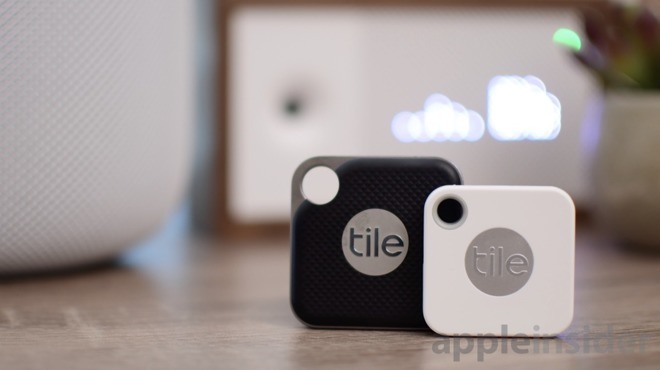Tile, a manufacturer of location tracking hardware and software, on Wednesday told the House Judiciary Committee that Apple continues to participate in anticompetitive behavior despite promising not to do so as part of a resolution reached earlier this year.
In January, Tile and three other companies met with the House of Representatives Judiciary Committee's antitrust committee to hash out concerns relating to tech giants Apple, Amazon, Facebook and Google.
During the panel, Tile VP and General Counsel Kirsten Daru said the company enjoyed an amicable relationship with Apple until 2019. After years of collaboration, the relationship began to sour when reports indicated Apple was readying a tracking device that would compete directly with Tile's offerings.
"Unfortunately, since that hearing, Apple's anti-competitive behaviors have gotten worse, not better," Tile said in a statement to the committee posted online on Wednesday, reports Reuters.
In June of 2019, Apple stopped selling Tile products in its retail outlets. The company later poached a Tile engineer, though it is unclear if the person was brought on to develop a competing product. More recently, Apple locked out third-party access to iPhone 11's U1 UWB radios, technology thought to play an integral role in Apple's rumored tracking system.
Perhaps most threatening to Tile's business was Apple's decision to lock down background processes in iOS 13, specifically geolocation services that Tile's iOS app relies on to function. With iOS 13, Apple replaced the "Always Allow" location services option with "Allow Once," prompting users for authorization each time an app requests device location information.
For products like Tile, which regularly ping iPhone's built-in positioning hardware, background processing is essential to delivering a seamless user experience. Without constant access, certain Tile features like Smart Alerts are rendered useless.
Following Tile's testimony in January, Apple issued a statement suggesting certain trusted developers would be able to re-integrate the "Always Allow" option at a later date.
"We're currently working with developers interested in enabling the Always Allow' functionality to enable that feature at the time of setup in a future software update," Apple said.
That capability was not present in the latest iOS 13.4 update released last week. Tile notes Apple's own apps, including Find My, enable background location tracking without user authorization.
"Despite Apple's multiple promises to reinstate Always Allow' background permissions option for third party apps' geolocation services, Apple has not yet done so," Tile said on Wednesday.
The House Judiciary Committee investigation is one of a handful of government probes into tech companies and their business operations. The U.S. Justice Department, the Federal Trade Commission and state attorneys general are looking into claims of monopolization, price fixing, anticompetitive practices and more.
 Mikey Campbell
Mikey Campbell







-m.jpg)






 Thomas Sibilly
Thomas Sibilly
 Wesley Hilliard
Wesley Hilliard
 Marko Zivkovic
Marko Zivkovic

 Malcolm Owen
Malcolm Owen

 Amber Neely
Amber Neely










56 Comments
Oh, go fuc* yourself Tile. You have been in business for a decade and still are niche
Focus on securing “some” competitive advantage
Not sure Apple is targeting Tile, it’s just unfortunate fall out from Apple improving the security of the platform and developing new features. Tile need to remember they are a guest on Apple’s platform. Apple is not stopping them from going to other platforms which would be anticompetitive. Apple should be free to change their platform and develop new products even if they compete with other companies that choose to build their businesses on top of Apple’s products. This is always a risk when you build on top of or use someone else’s work.
Tile has hardly evolved or diversified as a business since coming on to the scene. The smartphone makers were always in a much better position to deliver a more seamless and integrated experience simply because they created the platform. Tile should have either evolved into other products or looked to be acquired by Google or Apple.
I sympathize with Tile. The optics are bad. But I plan to buy Apple Trackers as soon as they come out because I am sure they will be better than everyone else’s including the Tiles I own.
Just go to the Settings app and “Always Allow” will be inside the location settings of every app that requests for location. Not that hard.